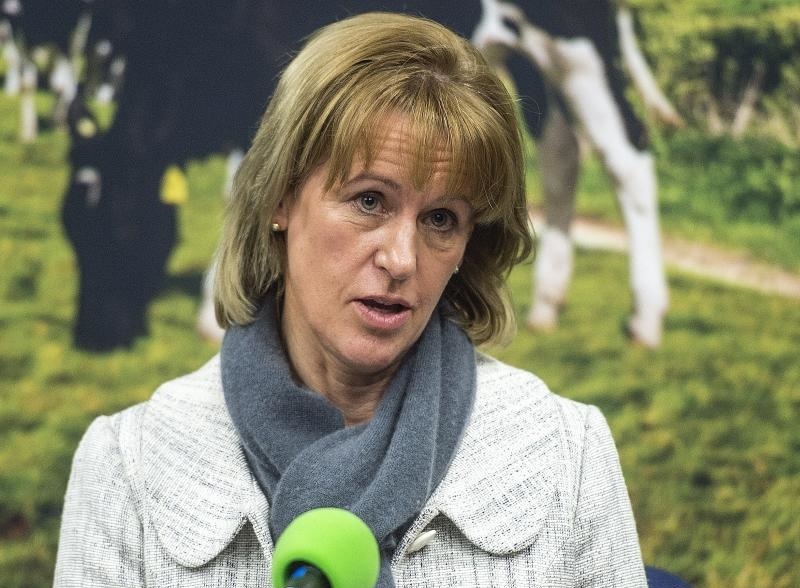
The UK and EU have made a "decisive step" in the Brexit process by agreeing to transitional terms, helping give a "bit more certainty" to British farming.
Under a joint withdrawal deal published on Monday (19 March), the UK will keep the benefits of the single market and customs union for, according to Brexit Secretary David Davis, “near enough to the two years we asked for”.
The Brexit negotiator, along with the EU's Chief Negotiator Michel Barnier, announced that the transitional period is set to last from 29 March 2019 to December 2020.
Mr Davis announced that EU citizens arriving in the UK between the transitional period will enjoy the same rights and guarantees as those who arrive before Brexit.
The UK will also be able to negotiate and sign trade deals during the transitional stage.
However, Mr Barnier warned that continued failure to resolve the Northern Irish border issue could put the whole agreement in jeopardy.
'Avoid cliff-edge'
The National Farmers' Union (NFU) has given a cautious welcome to the 21-month transitional period, saying it "helps to have a bit more certainty" for British farming businesses.
NFU President Minette Batters said clarity on the details is key. "There is still outstanding vital information which food and farming businesses need to understand," Mrs Batters said.
“It’s vital that there is a smooth transitional period for the farming industry, avoiding any cliff-edge scenario.
“This is best achieved by retaining membership of the EU customs union until a settled free trade relationship comes into force.”
Customs union
Last year, fourteen leading farming organisations in the UK wrote to the government urging continued membership of the customs union after Brexit.
In a joint statement, they said it was vital to ensure a transition period through which the UK retains unfettered access to European markets.
The organisations said that the government must put in place a "fully functioning immigration system" before the end of freedom of movement, that ensures farmers have access to the workers that are vital to supporting the industry.
The statement added that government needs to work together with the farmers to prepare for a "new long-standing free trade agreement", which "retains and grows" opportunities for food trade with the EU and the rest of the world.
'Continuity'
The NFU President said the farming industry needs "continuity" after the date of withdrawal to ensure that farmers can continue to produce "safe, traceable and affordable" food, and provide environmental and economic benefits for the nation.
“The NFU has long called for frictionless trade with the EU, free of tariffs and non-tariff barriers,” Mrs Batters added.
“As our largest trading partner - over 70% of our exports of food and non-alcoholic drinks being sent to EU markets - access to the EU must be a top priority.
“We also understand that Government will pay the 2019 BPS scheme on the same basis as now – a welcome assurance for our farmers making business decisions now such as for planting and animal rearing.
“We look forward to working with Government as it introduces its own reforms to the farm payments system from 2020 - one that supports farms that are profitable, productive and competitive.”
